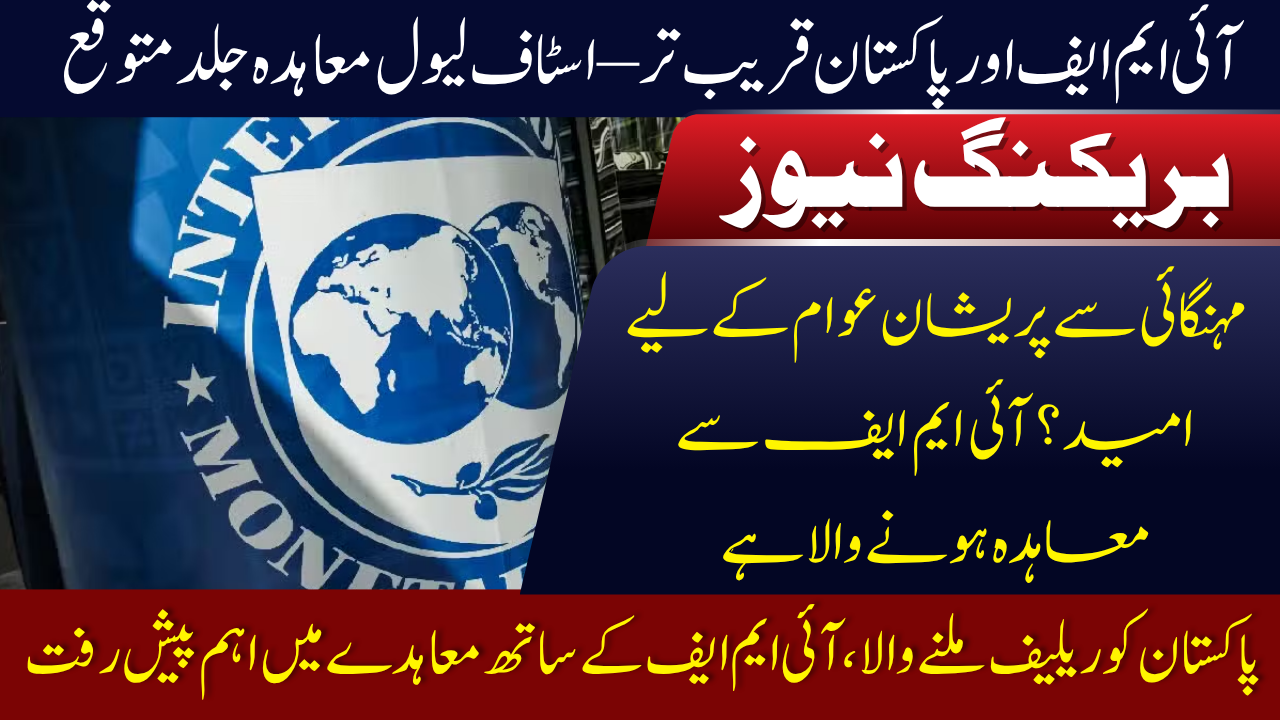IMF and Pakistan Make Progress
In a key development for Pakistan’s struggling economy, the government and the International Monetary Fund (IMF) have reported progress in their ongoing talks, moving closer to a staff-level agreement (SLA) under the Fund’s extended loan program. The agreement, once finalized, will unlock critical financing to stabilize Pakistan’s economic outlook.
Why the Agreement Matters
Pakistan has been facing serious economic challenges, including:
- High inflation affecting everyday essentials.
- Depreciation of the Pakistani rupee.
- Rising external debt repayment pressures.
- Weak foreign exchange reserves.
A staff-level agreement with the IMF would not only unlock the next tranche of financial assistance but also boost investor confidence, open doors for international lending, and stabilize the currency.
Key Points Under Discussion
Both sides are negotiating over important reforms that Pakistan must commit to in order to secure the agreement:
- Fiscal Reforms: Measures to improve tax collection and reduce budget deficits.
- Energy Sector Restructuring: Addressing circular debt and improving power sector efficiency.
- State-Owned Enterprises (SOEs): Plans for restructuring or privatization of loss-making entities.
- Monetary Policy: Ensuring tighter monetary controls to curb inflation.
Quick Detail Table
| Aspect | Details |
|---|---|
| Parties Involved | IMF & Government of Pakistan |
| Current Status | Progress made toward Staff-Level Agreement |
| Program Type | Extended Fund Facility (EFF) |
| Next Step | Finalization of SLA → IMF Executive Board Approval |
| Key Conditions | Tax reforms, energy restructuring, SOE reforms, tighter monetary policy |
| Expected Benefits | Loan tranche release, stronger reserves, improved investor confidence |
What Happens After the SLA?
Once a staff-level agreement is reached, it must be approved by the IMF Executive Board before funds are disbursed. Pakistan is expecting around $1.1 to $1.5 billion from the next tranche, which will help shore up foreign exchange reserves and provide breathing space for economic reforms.
Expert Opinion
Economists believe that while an IMF program brings immediate relief, the real challenge lies in implementing long-term structural reforms. Without reforms in taxation, energy pricing, and governance of state enterprises, Pakistan risks returning to a cycle of repeated bailouts.
Public Concerns
While the IMF program is crucial for stabilizing the economy, ordinary citizens are concerned about austerity measures such as higher taxes, increased electricity tariffs, and reduced subsidies, which may put more financial burden on households.
Conclusion
The reported progress between the IMF and Pakistan toward a staff-level agreement is a positive signal for the economy. However, the road ahead requires consistent reform implementation and strong political will. If successful, the agreement could help stabilize Pakistan’s economy and restore investor confidence, but the real test will be managing the social and economic impact of IMF-mandated policies.
